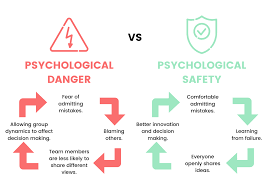Understanding Request for Quotation (RFQ) with an Example
A Request for Quotation (RFQ) is a document used in procurement to invite suppliers to submit a quotation for the provision of specific goods or services. It helps businesses compare different offers and select the best supplier based on price, quality, and other factors.
Here is an example of an RFQ:
| RFQ Number: | RFQ-2022-001 |
|---|---|
| Date Issued: | March 15, 2022 |
| Deadline for Submission: | April 5, 2022 |
Scope of Work:
The company is seeking quotations for the supply and delivery of office furniture for its new office space. The furniture must be ergonomic, durable, and comply with safety standards.
Requirements:
- Provide a detailed list of the office furniture items available.
- Include pricing for each item, including any discounts or special offers.
- Specify delivery timelines and terms.
- Provide information on warranty and after-sales support.
Contact Information:
If you are interested in submitting a quotation or have any questions, please contact:
Name: John Doe
Email: johndoe@example.com
Phone: (555) 123-4567
This RFQ example demonstrates how businesses can effectively communicate their requirements to potential suppliers and streamline the procurement process. By providing clear instructions and deadlines, companies can receive competitive quotations that meet their needs.
8 Essential Tips for Crafting an Effective RFQ (Request for Quotation) Example
- Clearly define your requirements in the RFQ document.
- Specify the quantities needed for each item or service.
- Include a deadline for submissions to ensure timely responses.
- Provide clear instructions on how suppliers should format their quotes.
- Request information on pricing, payment terms, and delivery schedules.
- Ask for references or past performance data from potential suppliers.
- Consider including evaluation criteria to compare supplier proposals objectively.
- Ensure confidentiality of sensitive information shared in the RFQ process.
Clearly define your requirements in the RFQ document.
When preparing an RFQ document, it is crucial to clearly define your requirements to potential suppliers. By providing detailed specifications, including quantity, quality standards, delivery timelines, and any other relevant information, you set clear expectations for what you are looking for. This clarity not only helps suppliers understand your needs accurately but also enables them to submit more accurate and competitive quotations. Clearly defined requirements in the RFQ document streamline the procurement process and increase the likelihood of receiving proposals that align with your expectations and budget constraints.
Specify the quantities needed for each item or service.
When creating a Request for Quotation (RFQ), it is essential to specify the quantities needed for each item or service. Clearly outlining the quantity requirements helps suppliers provide accurate pricing and ensures that they can fulfill the order effectively. By detailing the exact quantities needed, businesses can receive more precise quotations and avoid any misunderstandings or discrepancies during the procurement process. This practice not only streamlines the evaluation of supplier offers but also facilitates smoother negotiations and ultimately leads to successful procurement outcomes.
Include a deadline for submissions to ensure timely responses.
Including a deadline for submissions in your Request for Quotation (RFQ) example is crucial to ensure timely responses from potential suppliers. By clearly specifying a deadline, you create a sense of urgency and prompt suppliers to submit their quotations promptly. This helps streamline the evaluation process and allows you to make informed decisions within a set timeframe. Setting a deadline also demonstrates professionalism and organization, showing suppliers that you value their time and expect timely responses. Overall, including a deadline in your RFQ example is essential for efficient procurement processes and successful vendor selection.
Provide clear instructions on how suppliers should format their quotes.
When issuing a Request for Quotation (RFQ), it is essential to provide clear instructions on how suppliers should format their quotes. By specifying the required format, such as itemized pricing, delivery timelines, and warranty information, businesses can ensure that suppliers provide consistent and relevant information. Clear instructions help streamline the evaluation process and enable companies to compare quotes effectively based on the same criteria. This practice not only saves time for both parties but also helps in making informed decisions when selecting the best supplier for the goods or services needed.
Request information on pricing, payment terms, and delivery schedules.
When creating an RFQ, it is essential to request detailed information on pricing, payment terms, and delivery schedules from potential suppliers. By specifying these key factors in the RFQ, businesses can ensure that they receive comprehensive quotations that accurately reflect the cost, payment options, and timeline for the delivery of goods or services. Clear communication of expectations regarding pricing, payment terms, and delivery schedules helps streamline the evaluation process and enables businesses to make informed decisions when selecting a supplier.
Ask for references or past performance data from potential suppliers.
When preparing a Request for Quotation (RFQ), it is essential to ask potential suppliers for references or past performance data. By requesting this information, you can gain valuable insights into the supplier’s track record, reliability, and quality of service. References and past performance data can help you assess whether the supplier has successfully delivered similar goods or services in the past and if they have a reputation for meeting deadlines and quality standards. This proactive approach can assist you in making informed decisions and selecting a supplier that aligns with your business needs and expectations.
Consider including evaluation criteria to compare supplier proposals objectively.
When preparing a Request for Quotation (RFQ), it is essential to consider including evaluation criteria to compare supplier proposals objectively. By clearly defining the criteria against which proposals will be evaluated, businesses can ensure a fair and transparent selection process. Criteria such as price, quality, delivery timelines, warranty terms, and after-sales support can help companies assess supplier proposals consistently and make informed decisions based on their specific needs and priorities. Including evaluation criteria in an RFQ example enhances the effectiveness of the procurement process and facilitates the selection of the best supplier for the job.
Ensure confidentiality of sensitive information shared in the RFQ process.
It is crucial to ensure the confidentiality of sensitive information shared during the RFQ process. Protecting proprietary data, pricing details, and other confidential information is essential to maintain a competitive advantage and safeguard business interests. By implementing strict confidentiality measures, such as non-disclosure agreements and secure communication channels, businesses can trust that their information remains protected throughout the RFQ process, fostering trust with potential suppliers and mitigating the risk of unauthorized disclosure. Prioritizing confidentiality in the RFQ process demonstrates a commitment to professionalism and integrity in procurement practices.




